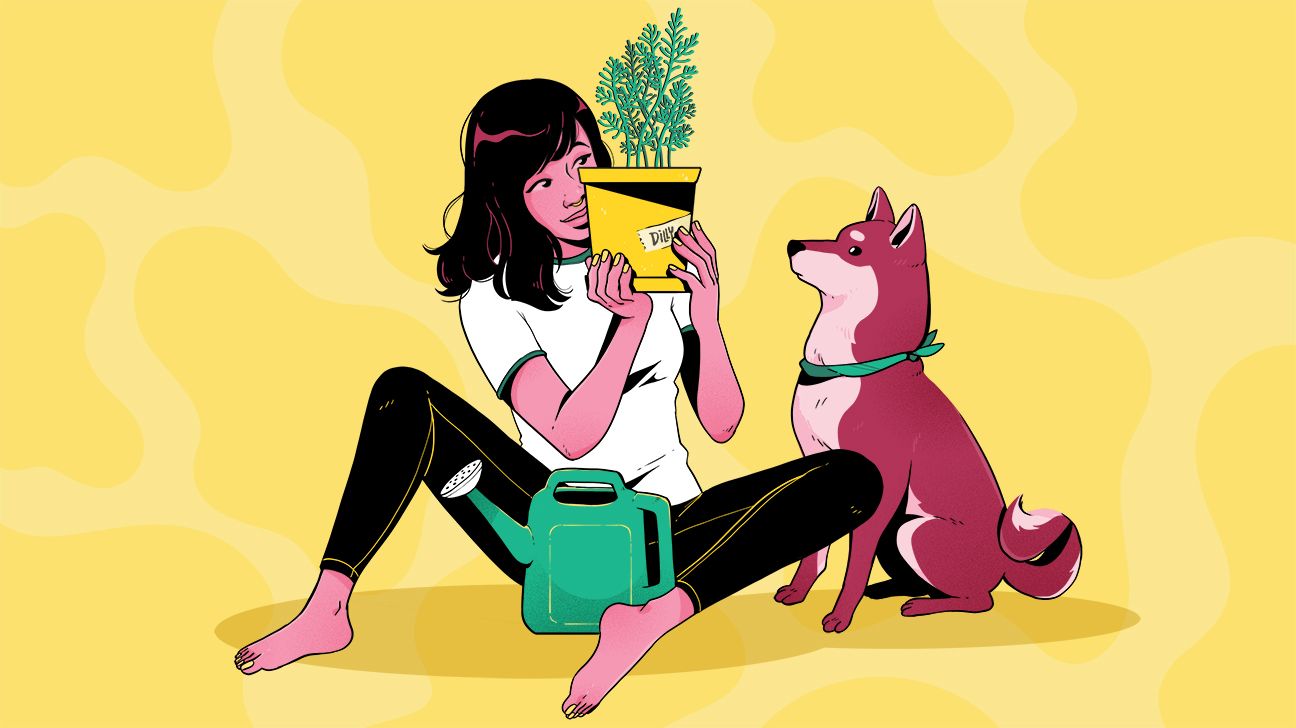
If I were to tell you about the last time I did something creative, I would have to go back to when I was 21. It was toward the end of my senior year, and I was in a graduate-level writing class, getting feedback on a rewriting I’d done of the Bible — a three-part story inspired by the chest tattoo of a Burberry model (2009 Tumblr, come collect me).
That was 2011. And really? Have I really not felt creative in the last 9 years? Been creative?
The answer is technically no. My job offers me plenty of creative opportunities in the form of storytelling, art, and even strategy. In my offline life, the other day, I baked my own discount version of Hong Kong-style baked pork rice. So why does my brain fail to connect these dots?
I think it’s because I’m hanging on to my old feelings around creativity: a flow that’s built from a chest full of inspiration and manic late nights where I’m escaping time. These days though, with the general chaos of the world and increasing body fatigue due to age, that kind of behavior feels more like stealing time — and that perspective has to change.
For the last 5 years, I’ve been so caught up in trying to make a living wage in one of the most expensive cities in the world that I’ve ended up funneling my creative energy into work. Don’t ever do that — or, if you do, have clear boundaries — because it’ll poison the creative well, and when you dip into it, it won’t feel restorative anymore.
But if you’re a little too late for that, here are some tips:
1. Untie creativity from past expectations (or any expectations). When I complained about not being able to go back to my regular 3x/week workout schedule, my therapist implied I had to remember where I was starting from: zero. Standards and quality can change, and that’s OK. If you’re back at the inspiration stage, this roundup of books for creativity might help.
2. Have a variety of creative activities and hobbies in your arsenal against boredom or anxiety. (We covered 20 mini ways to start.) One of my biggest frustrations was that I relied on writing to be my all-or-nothing outlet. These days I’ve added planting herbs (dill!), cross-stitching, photography, and bullet journaling.
3. Decide whether you’re looking to redirect or transform your energy. In simpler terms, are you looking for comfort or an escape? Because while comfort is always an escape, escape isn’t always comfort, especially if you return and things are… still chaotically and painfully the same. As writer Ravynn Stringfield shares how, for Black creatives right now, the call for creativity is about making sense of reality and finding resilience in self-created order.
The last step? Share that sh*t. Whether it’s on the ’gram or in a text to your friends, bringing what you made into someone else’s world makes it even more real. And as you improve, find ways being creative can improve your life, like the way gardener Nelson ZePequeno has turned microgreens into a fight for racial justice.
I used to not share what I created because I wasn’t proud of it. But sometimes what I really need to hear is not how good something looks (because I already know it doesn’t) but rather validation of the time spent. There are days when even a comment like “Wow, this must have been a lot of work!” feels amazing because it tells me I had time. And I used it the way I wanted to.
These days, thanks to the quiet anxiety that runs underneath this seemingly endless pandemic (and 4 months of sitting with no one but myself), a new state has been thawed from my brain.
Creativity has become less about the art of showing off finished products and more about the process of caring for myself. At least, that’s the definition I’ve decided on, for myself, after taking a look at how I engage in the culture of self-revenge. Journalist Daphne Lee coined this term last week for Greatist when covering the phenomenon of “revenge bedtime procrastination” (aka doomscrolling with the element of insomnia).
She writes about “self-revenge” — the concept of using risk-taking behavior as retaliation. It feels important to mention that what constitutes a risk is different for everyone, especially right now. If you’ve opened all the stories mentioned above in separate tabs, please add this one, by poet and writer Gabrielle Smith, to your reading list. It’s a powerful piece about anger and the risk Black people are taking to create a new world where they can express their anger.
Christal Yuen is a senior editor at Greatist, covering all things beauty and wellness. Find her musing about therapy on Twitter.
